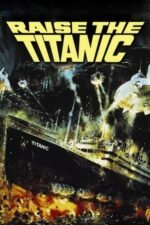Beyond the Blockbuster: Why We’re Still Captivated by the Titanic Story
Okay, let's talk about Titanic. I know, I know – it feels almost cliché to bring it up. It was huge, a cultural phenomenon that dominated the late 90s and launched careers (Leonardo DiCaprio, anyone?). But beyond the Celine Dion soundtrack and the sweeping romance, there’s something deeply compelling about the story of the Titanic that continues to resonate with us, even decades later. And it's not just James Cameron's film – the fascination runs much deeper than a single movie.
What is it about this particular disaster that holds such sway? I think it’s a potent cocktail of factors. Firstly, there's the sheer scale of the tragedy. The "unsinkable" ship, representing the pinnacle of human ingenuity and ambition, meeting such a devastating end…it’s inherently dramatic. It speaks to our anxieties about hubris and the limits of technology – something that feels particularly relevant today, especially when you consider documentaries like Titan: The OceanGate Submersible Disaster. That film really hammered home how quickly even seemingly advanced exploration can turn perilous.
But it's more than just a disaster movie. Films like S.O.S. Titanic highlight the human element – the interwoven stories of passengers from all walks of life, their hopes and dreams colliding with unimaginable tragedy. It’s that glimpse into ordinary lives abruptly shattered that truly gets to you. And then there's The Unsinkable Molly Brown, which offers a wonderfully spirited counterpoint; she embodies resilience and defiance in the face of overwhelming odds – a reminder that even amidst chaos, human kindness and courage can shine through.
Interestingly, the ongoing efforts to document and "resurrect" the Titanic itself—like Titanic: The Digital Resurrection—only fuel this fascination. Seeing those underwater expeditions, witnessing the slow decay of the wreck… it’s both haunting and strangely beautiful. It's a tangible connection to history, a way to confront the past in a visceral way. I remember seeing early images from the discovery back when I was a kid – they were just stunning, and sparked an immediate curiosity about what happened that night.
Even documentaries like Titanic: Into the Heart of the Wreck which focus on the scientific investigation, tap into this deep-seated desire to understand, to piece together the puzzle of what went wrong. And for those interested in the making of the film itself, Ship of Dreams: Titanic Movie Diaries offers a charming peek behind the curtain.
Ultimately, the story of the Titanic isn't just about a ship sinking; it’s a mirror reflecting our own vulnerabilities and aspirations. It’s a reminder that even the grandest achievements can be fragile, and that human connection – in all its messy, beautiful complexity – is what truly matters.
So, while you might have seen Titanic (the movie) already, I encourage you to explore some of these other perspectives. They offer a richer, more nuanced understanding of this enduring legend.





































